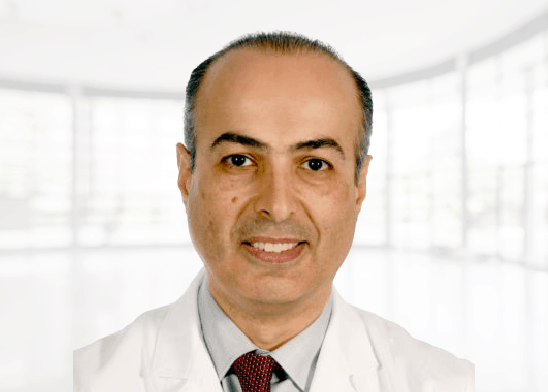December 3, 2020
Shahryar Ahmadi, M.D., Co-Principal Investigator on $1.725 Million Grant to Develop Virtual Rotator Cuff Arthroscopic Skill Trainer (ViRCAST)ACH Receive $1.725 Million Grant to Develop Virtual Rotator Cuff Arthroscopic Skill Trainer (ViRCAST)
North Carolina-based software research and development company Kitware and its three Arkansas partners—the University of Central Arkansas (UCA), University of Arkansas for Medical Sciences (UAMS), and Arkansas Children’s Hospital (ACH)—received a $1.725 million Small Business Innovation Research grant from the National Institute of Arthritis and Musculoskeletal and Skin Diseases. The award supports the design, development, and validation of a Virtual Rotator Cuff Arthroscopic Skill Trainer (ViRCAST) to virtually simulate arthroscopic rotator cuff repair surgery and demonstrate its effectiveness as a training platform for surgical residents.
Surgical repair of the rotator cuff is one of the most common orthopedic procedures performed and accounts for approximately 75,000 procedures each year in the U.S. alone.
ViRCAST is being developed in response to the needs of teaching hospitals across the country for an arthroscopy training program that provides standardized, quantified feedback for evaluation and self-assessment. This simulator can readily be incorporated into surgery-training curriculum and will provide various modalities such as physics based interactive simulation, realistic visualization and haptic feedback. .
The three-year project is being led by principal investigators Dr. Venkata S. Arikatla of Kitware and Dr. Tansel Halic of UCA.
Co-principal investigators include Dr. Sinan Kockara of UCA, Dr. Shahryar Ahmadi, director of UAMS Orthopaedics’ Shoulder and Elbow Center, and Dr. Andinet Enquobahrie, the director of medical computing at Kitware.
Arthroscopy is a minimally invasive surgical procedure on a joint in which an examination and sometimes treatment of damage is performed using an arthroscopel, an endoscope that is inserted into the joint through a small incision.
Simulation-based training has been shown to decrease operative time which reduces operating room and anesthesia costs and increase clinical productivity. Patients benefit from reduced charges associated with decreased operative time as well as reduced error rate.
“Our interest of the project stemmed from the long discussions with Dr. Shahryar Ahmadi of UAMS. After several discussions with Dr. Ahmadi and observations of shoulder arthroscopy in the actual operating room, we realized that surgery residents need a risk-free, low-cost, realistic training environment where they can practice and improve their skills while getting quantitative feedback for their performances,” said Drs. Halic and Kockara.
The SBIR grant was awarded in September 2019 and will go through Aug. 31, 2022
Related:
Virtual Rotator Cuff Arthroscopic Skill Trainer: Results and Analysis of a Preliminary Subject Study
Publication:ICISDM 2020: Proceedings of the 2020 the 4th International Conference on Information System and Data Mining
May 2020 Pages 139–143https://doi.org/10.1145/3404663.3404673
